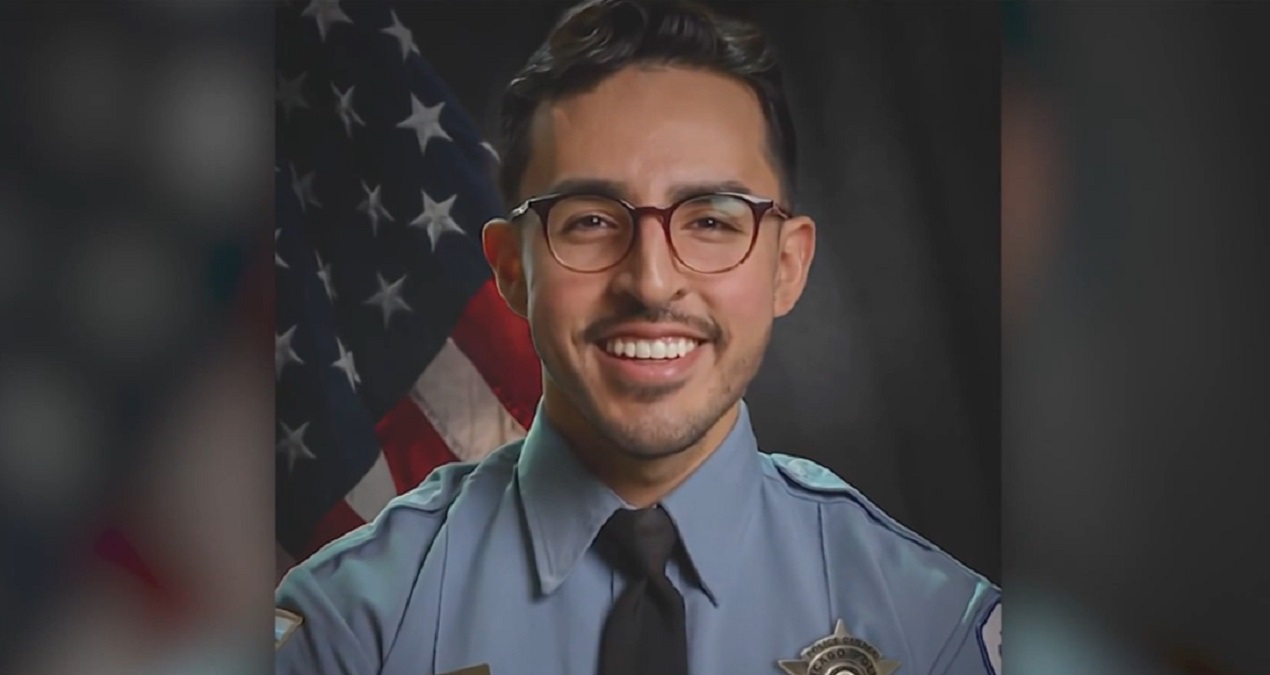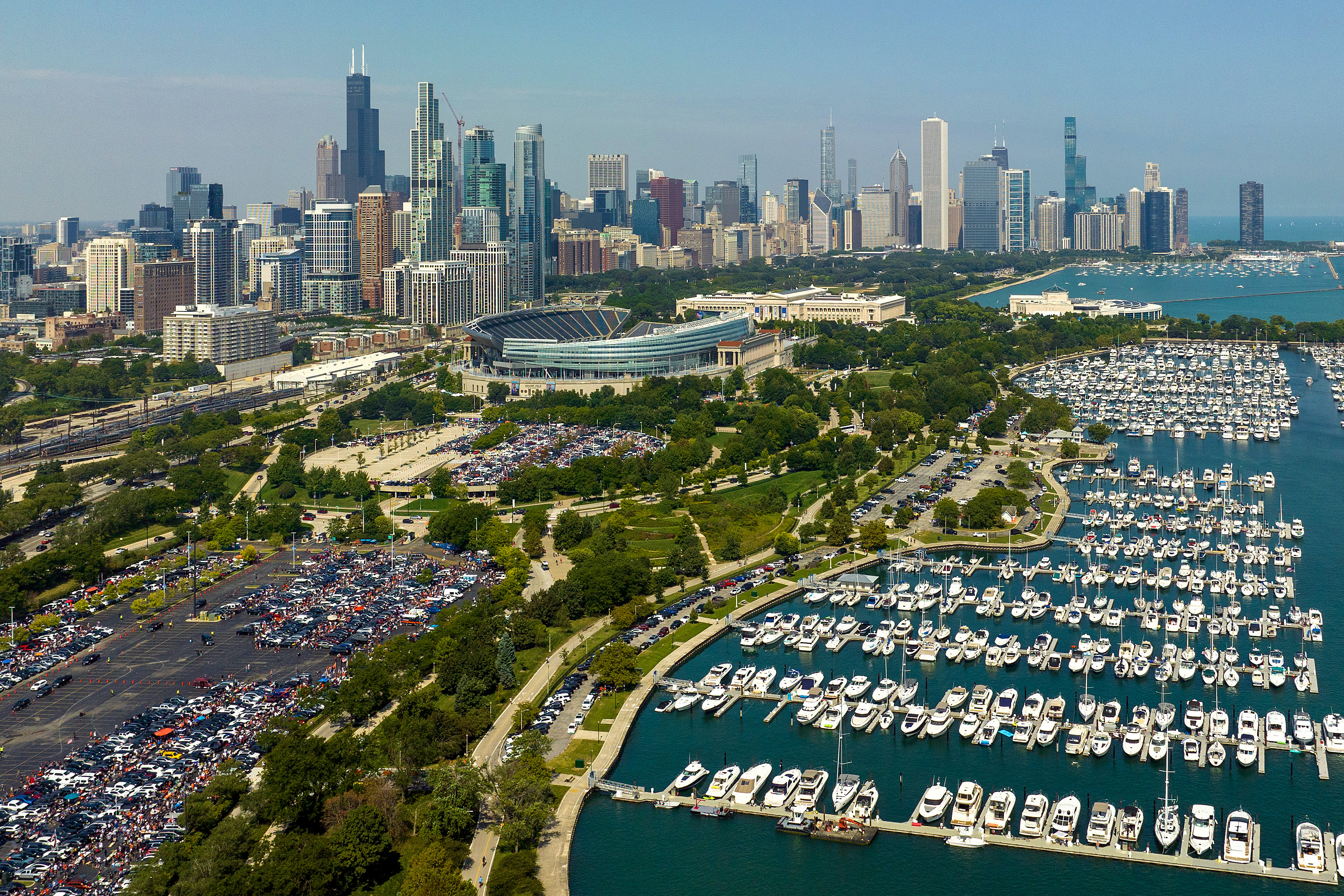UPDATE: An FDA panel of experts on Friday voted not to endorse COVID-19 booster shots of the Pfizer vaccine. Read more here.
_________________________________________________________________________
Scientists inside and outside the government have been divided in recent days over the need for boosters and who should get them.
The World Health Organization has strongly objected to rich nations giving a third round of shots when poor countries don’t have enough vaccine for their first. Still, the Biden administration has said it plans to dispense COVID-19 booster shots to most Americans.
Feeling out of the loop? We'll catch you up on the Chicago news you need to know. Sign up for the weekly Chicago Catch-Up newsletter here.
That plan faced its first major hurdle Friday as a government advisory panel met to decide whether to endorse extra doses of the Pfizer vaccine.
Here's what we know so far:
Who will the FDA's decision apply to and when?
Local
The FDA experts were set to vote on one basic question: Does the evidence show that a Pfizer booster would be safe and effective for people 16 and older? In the event of a yes vote, the FDA is expected to quickly approve boosters for Pfizer's shot.
But that is just one step in the process. The more thorny question of who should get the shots and when will be debated on Wednesday by advisers to the Centers for Disease Control and Prevention. The CDC generally adopts the recommendations of the group, which sets policy for U.S. vaccination campaigns.
The CDC has said it is considering boosters for older people, nursing home residents and front-line health care workers, rather than all adults.
President Joe Biden’s top health advisers, including the heads of the FDA and CDC, first announced plans for widespread booster shots a month ago, targeting the week of Sept. 20 as an all-but-certain start date. It said boosters would be dispensed eight months after the second dose of the Pfizer and Moderna vaccines.
What about those who got Moderna or Johnson & Johnson vaccines?
Separate FDA and CDC decisions will be needed in order for people who received the Moderna or J&J shots to get boosters.
Moderna on Wednesday released data on breakthrough cases, saying it supports the push for wide use of COVID-19 vaccine booster shots.
But as the FDA's Vaccines and Related Biological Products Advisory Committee debates administering third doses of Pfizer and BioNTech's vaccine, federal health regulators say they need more time to review Moderna's application for extra doses.
Who would be eligible for booster shots?
In a joint statement in August, the directors of the Centers for Disease Control and Prevention, Health and Human Services, the National Institute of Health and other top medical experts, outlined plans to begin administering booster shots at the end of September.
The overall plan was pending a Food and Drug Administration evaluation of the safety and effectiveness of a third dose, the officials said.
Those who were fully vaccinated earliest, which includes health care workers, nursing home residents and other older people, would be first in line to get a booster shot before they are available to the general public.
"As we see what this data is based on, as we think about prioritization, it's really our oldest folks who we know are at highest risk," Chicago Department of Public Health Commissioner Dr. Allison Arwady said at the time the plan was announced. "And, you know, I've been sort of hinting all along that if and when we saw a potential booster I think it would be most likely to at least start with thinking about folks in the nursing homes or those oldest Chicagoans."
Who can get booster shots currently?
U.S. regulators already authorized an extra dose of the Pfizer or Moderna COVID-19 vaccines for people with compromised immune systems.
The announcement applies to several million Americans who are especially vulnerable because of organ transplants, certain cancers or other disorders and who received the Moderna or Pfizer COVID vaccines.
According to the CDC, the list includes people who have:
- Been receiving active cancer treatment for tumors or cancers of the blood
- Received an organ transplant and are taking medicine to suppress the immune system
- Received a stem cell transplant within the last 2 years or are taking medicine to suppress the immune system
- Moderate or severe primary immunodeficiency (such as DiGeorge syndrome, Wiskott-Aldrich syndrome)
- Advanced or untreated HIV infection
- Active treatment with high-dose corticosteroids or other drugs that may suppress your immune response
The agency notes that "people should talk to their healthcare provider about their medical condition, and whether getting an additional dose is appropriate for them."
What about those who got the Johnson & Johnson vaccine?
People who received the one-shot Johnson & Johnson vaccine will also likely need a booster shot, but more information is needed because the U.S. didn't begin administering it until March 2021, officials said.
Health officials said they are expecting to receive more data in the fall and will "keep the public informed with a timely plan for J&J booster shots as well."
The FDA and CDC’s approval and recommendation for immunocompromised individuals does not apply to those who got the Johnson and Johnson vaccine.
"There is not enough data at this time to determine whether immunocompromised people who received the Johnson & Johnson’s Janssen COVID-19 vaccine also have an improved antibody response following an additional dose of the same vaccine," the CDC states.
When can eligible people get their third dose?
The FDA determined that transplant recipients and others with a similar level of compromised immunity can receive a third dose of the vaccines from Pfizer and Moderna at least 28 days after getting their second shot.
Chicago's top doctor says the city is "absolutely ready" to administer booster vaccines to those with compromised immune systems.
"We are absolutely ready," Arwady said. "We have vaccine available, especially because if this recommendation comes through, it would be for probably 2-3% of eligible Chicagoans where we think about even... kind of the outside estimate of who this might include."
Walgreens announced last month that its pharmacies will offer additional COVID-19 vaccine doses to eligible patients with compromised immune systems.
“Walgreens is committed to administering COVID-19 vaccines to our most vulnerable populations as quickly and safely as possible,” said Kevin Ban, Walgreens Chief Medical Officer. “As one of the first companies to begin providing these vaccines, we have an experienced team of pharmacists and technicians, as well as the infrastructure to support the increased demand for these vaccines.”
Walgreens has begun offering same-day appointments available to such patients on a walk-in basis at select stores, the company said. Patients will bring their vaccination card or record to the appointments to prove eligibility.
Do immunocompromised people need to get a third shot of the same vaccine they already received?
According to the CDC, "a third dose of the same mRNA vaccine should be used."
"A person should not receive more than three mRNA vaccine doses. If the mRNA vaccine product given for the first two doses is not available or is unknown, either mRNA COVID-19 vaccine product may be administered," the agency's website states.
Are there any risks with getting a third dose? What about side effects?
The CDC reports there is "limited information about the risks of receiving an additional dose of vaccine, and the safety, efficacy, and benefit of additional doses of COVID-19 vaccine in immunocompromised people continues to be evaluated."
The agency noted that side effects with the third shot "were similar to that of the two-dose series."
The most common symptoms include fatigue and pain at the injection site, but "most symptoms were mild to moderate."
As with previous doses of the vaccine, the CDC notes that, "serious side effects are rare, but may occur."



